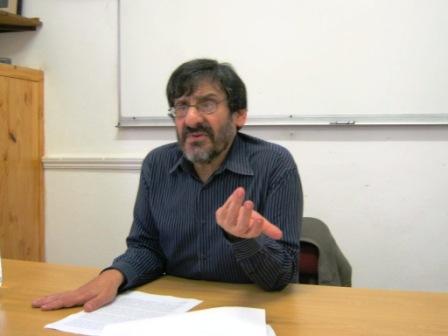
At last, a judge has reminded us of what many politicians and jurists have forgotten — that democracy is rule by the citizenry, not lawyers and judges.
Whatever happens to Judge Dennis Davis’s refusal to tell Parliament exactly when it should debate a no-confidence motion, his judgment broke new ground when it warned against the "politicisation" of the courts. Davis warned that politicians were bringing to court disputes that should be settled politically. They were trying to get judges to pronounce on issues that were outside their area of competence and so threatening the principle of separation of powers.
The courts, Davis pointed out, are there to enforce the constitution, not to substitute for democratic politics.
The trend about which Davis is rightly worried has been with us for some time. Politicians are not the only culprits — well-heeled interest groups and individuals also seem to feel that any political decision they dislike should be settled by the courts.
Politicians repeatedly ask the courts to settle internal disputes in their parties. Some of these actions are about issues that courts are meant to decide — such as rights being violated by corrupt practices. Most are not. Those in the second category are a waste of courts’ time, but don’t generally harm anyone except the politicians involved.
More serious for democracy are cases which seek to win in courts what has been lost in democratic politics. Courts are asked to overturn government appointments that minority parties dislike or to tell Parliament on what day it should hold a debate. Citizens’ groups ask them to decide which songs their opponents can sing or whether the roads should be tolled. One individual persuaded a court to rule against the government’s foreign policy — another may ask courts to decide who should be appointed as a judge.
Since these rulings are regularly hailed as triumphs for the rule of law, those who welcome them should consider the test that any principle must pass — would you still support it if it were applied to you or those you support? Should the courts have overturned the appointment of a Western Cape executive council consisting of men only on the grounds that it violated the gender equality guaranteed by the constitution? If an opposition province or council says it will debate a motion brought by the African National Congress but can’t do so this week, should the courts tell it to schedule it immediately? If the Western Cape applies a policy the majority party dislikes, should the courts tell it to change it?
Since any serious democrat would answer "no" in all these cases, why is it not a problem when courts are asked to decide who should be appointed to posts, whether foreign policy is appropriate or what Parliament’s schedule should be?
Those who bring the cases insist that fundamental rights are involved. But with a little imagination, just about any political setback can be framed as a threat to rights.
The danger this poses is that the idea of rights becomes discredited because they are seen as a means of allowing minorities to dictate to the majority. To object to this trend is not to argue for a simple majority principle in which those who are elected can do as they please. It is, rather, to insist that the core principle of constitutional democracy — that we all have rights no majority can violate — is far too important to be turned into an instrument to change government decisions that don’t infringe on anyone’s rights.
It is also to warn that the tendency to see courts as a first rather than a last resort sends out several messages, none of them healthy for democracy.
The politicians who use courts to fight their internal battles send out the message that they should not be taken seriously. This may instill a healthy disrespect for politicians — but making much of the political class seem ridiculous, does not enhance citizen enthusiasm for representative government.
Those who use courts to fight political battles rather than to defend basic rights, signal that they see the constitution as a means to thwart democracy rather than to defend it, as a means to overturn majority decisions rather than to defend the rights of majority and minority alike. The lawyers and jurists who defend this, signal that they do not see constitutions and courts which enforce them as a means to allow everyone a say, but as instruments to ensure that, as far as possible, only lawyers and judges have a say.
The line between defending rights and interfering in politics is hard to draw. But insisting that the line exists could take us further by reminding us that the courts are there to protect our right to engage in political contests, not to decide the contests for us. If democracy is to grow here, we need more judges who are willing to tell the politicians and interest groups that courts are here to defend our rights, not to rule over us.
• Prof Steven Friedman is director of the Centre for the Study of Democracy at Rhodes University and the University of Johannesburg. This article was published on Business Day.
